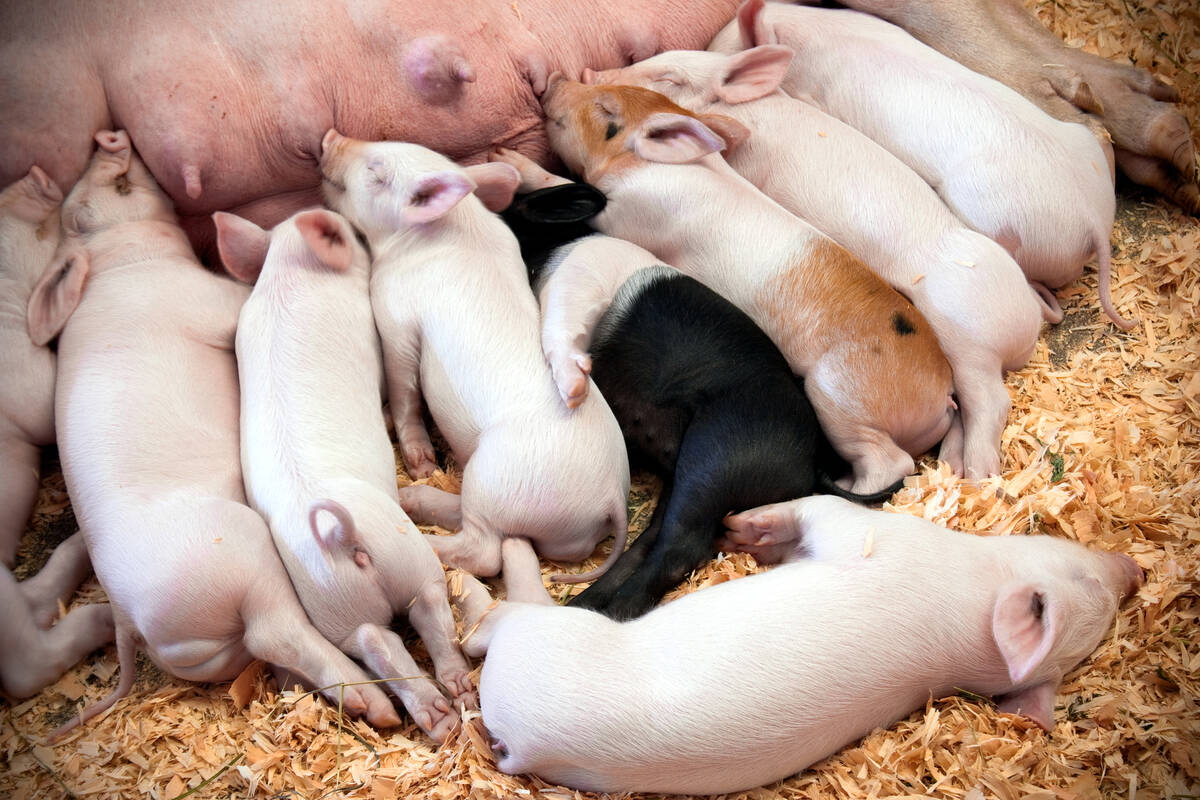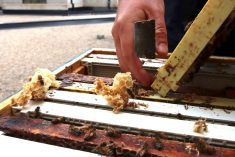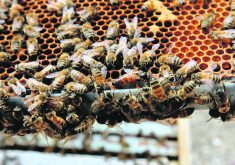Testing of possible treatments for a virus associated with the varroa mite is continuing to move ahead at the University of Manitoba.
We ve got it to a point where we can show it does kill the virus, said Rob Currie of the university s entomology department, referring to the use of double-strand RNA in treating deformed-wing virus.
In some ways the virus is a bit of a mystery, he added, but explained it is able to circulate through the bee affecting tissues and the brain, effectively shortening the life of an adult bee that contracts it.
Read Also

First-time pig mothers may need more lysine
Lysine feed recommendations may fall short for gilt pregnancies when it comes to making sure the mother pig can produce as much milk for her piglets as possible
However, when bee larva are exposed to the virus, the result is deformed wings, which makes flight impossible.
Currie says the next step in the process will be field tests on bees, but that is still several years away.
Lab tests have shown the treatment suppresses viral replication, increases the larval survival rate marginally, reduces wing deformity and increases the lifespan of adults. It is also non-toxic.
The treatment is administered to the bees via a sugar syrup.
Currie is also working with partners in Alberta and British Columbia to breed bees with natural resistance to the varroa mite, which would make it more difficult for viruses to spread.
Currently there are three products available in Manitoba to kill varroa mites, but many mites have developed a resistance to two of them.
Currie notes that new miticides are being tested, including one derived from hops. shannon. [email protected]


















